




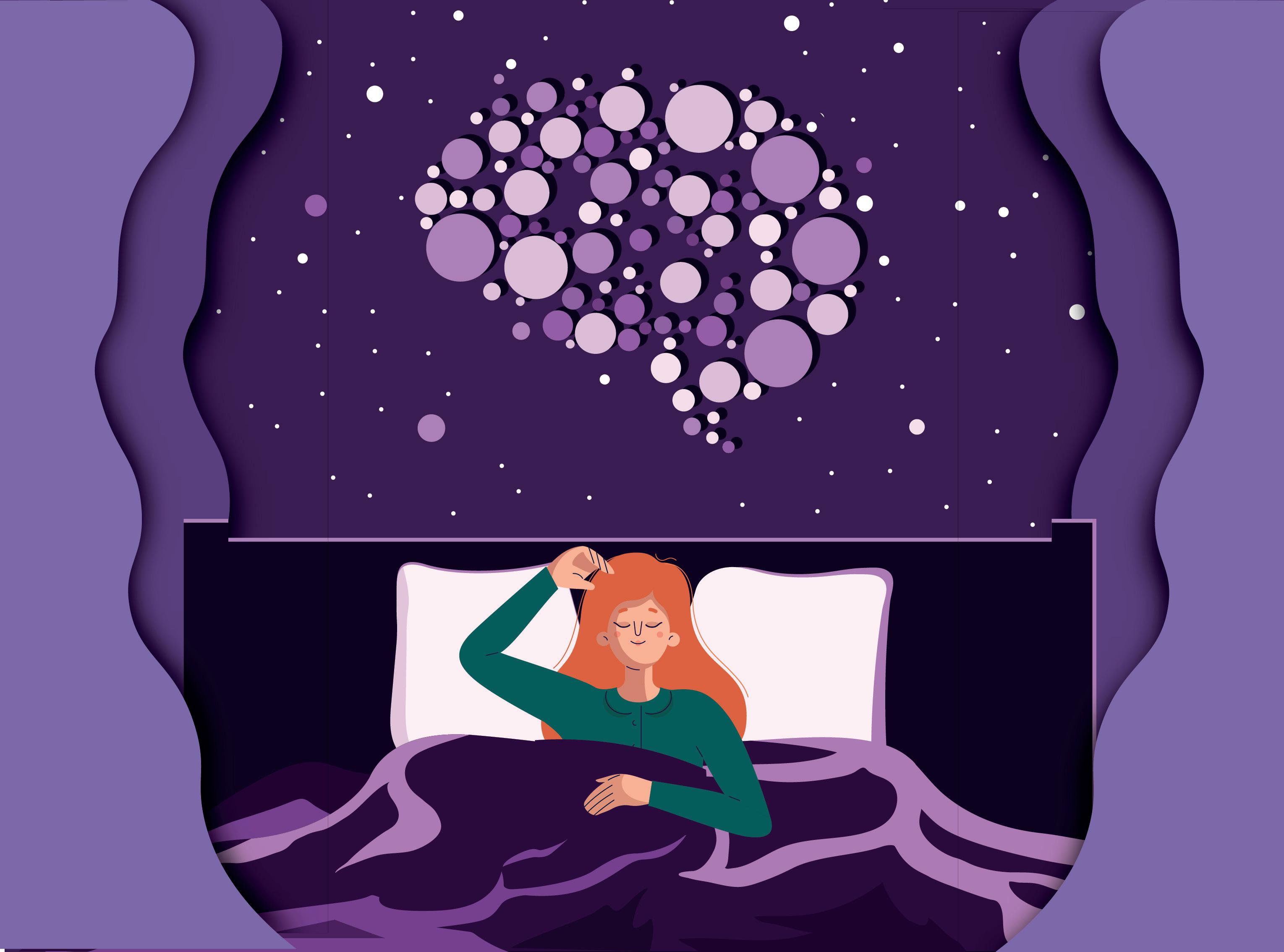











Better sleep is now on the agenda for a healthier, more productive nation; and with 40% of the population suffering from sleep problems, it’s time to take a closer look at our homes and make changes.
Quality sleep is vital for health and wellbeing. However, over a third of Brits suffer from sleep problems. Earlier this year, The Sleep Charity launched The Charter for Sleep Equality — adding sleep to the workplace health agenda. It’s now recognised as a major factor in achieving a healthy nation, with workplaces adding sleep training to their health and wellbeing programmes.
However, better sleep is created at home; and there are simple, practical things people can do to encourage this.
The perfect environment for better sleep
Creating — and maintaining — the perfect sleep environment is essential to achieving better sleep. The bedroom should be welcoming; usually cool, quiet, dark and clutter-free with a comfortable, supportive bed.
We also advise that electronic devices are switched off an hour before bedtime or even banned from the bedroom. Bright screens in the hour before bedtime can affect our sleep (particularly, how long it takes for us to fall asleep) by suppressing the sleep hormone melatonin and disrupting the body’s circadian rhythms.

Better sleep comes with comfort
Comfort — whether the bed or the bedding — also plays a part in optimising sleep. The ideal temperature is around 16–18°C. Make sure the room is tidy. A study conducted by New York’s St. Lawrence University revealed that a messy bedroom can lead to a poor night’s sleep and increased anxiety.
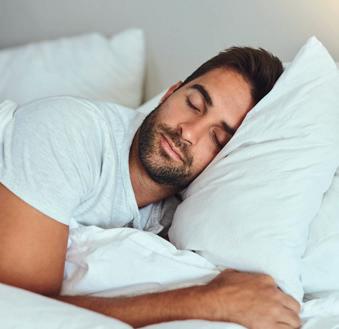
Better sleep starts before you get to bed
Set a proper bedtime routine. Aim to wind down at least an hour before bed as you switch screens off. Do something that you find enjoyable such as listening to soothing music or sounds, reading or meditating.
Going to bed and waking up roughly at the same time each day — even on weekends — is important for our body clocks. Exposure to natural light when you wake up in the morning helps suppress melatonin and boost alertness.

Consider what you do during the day that may impact sleep, such as caffeine consumption. Exercise is great for sleep and mental health, but try to do it earlier in the day rather than before bedtime. Even a short walk can make a difference.
Sleep is a basic human need, and how we sleep affects how we feel — whether it’s our mood, relationships or work. It’s essential, and we must protect it.

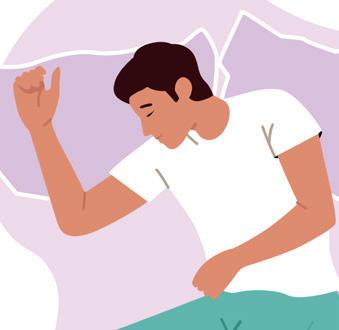
“Untreated OSA is a health risk.”
Hope CEO, Hope2Sleep
“We have long known that there is a link between sleep and mental health.”
Jess D’Cruz
Information Content Manager, Mind
“Narcolepsy is likely to place strains on relationships with family and friends.”
Henry Nicholls Trustee, Narcolepsy UK
Creating — and maintaining — the perfect sleep environment is essential to achieving better sleep.
Research found seven out of ten people were sleeping on the wrong mattress, seeking expert advice on what the best mattress is for your body will be invaluable to enhancing your quality of life.
A‘bad night’s sleep’ can often start with an unsupportive mattress,” explains Hannah Shore, Silentnight’s Sleep Expert, who explores how mattresses support bodies during sleep and how they perform in real-life sleep environments.


“If your spine isn’t supported in the correct way, your muscles cannot relax and you may wake up with aches and pains. If you find the right mattress, you enjoy a more restorative sleep. This leaves your back muscles and whole body feeling more relaxed and gives you the positive effects of a good night’s sleep.”
The science behind finding the best mattress Silentnight, the UK’s most trusted sleep brand, recognise that we are a nation of unique sleepers and therefore have multiple solutions based on the sleeping styles and physiology of each customer. “Buying a mattress is more of a science than one might imagine. We take in lots of information about our customers’ sleeping needs and experiences when advising them on an appropriate mattress,” says Hannah.
So, what should customers look for in a mattress? “The level of support your mattress offers can affect your spinal alignment; the larger the stature of an individual, the firmer the support needed from the mattress. If you’re waking up in the morning with aches and pains, it could be because it’s not the right mattress for your unique body shape and size,” explains Hannah.
The best mattress is what’s right for your body
Firmness is far from the only factor to consider. Silentnight research shows that finding the correct mattress is one way to help people deal with some of these issues.

“Unfortunately, there isn’t just one mattress that suits everybody,” says Hannah. “Everyone has their own unique sleeper needs. Some people overheat, others are cold, some people are restless, others are not. We need to find the right materials to ensure we enhance these unique sleeping environments.
“Foam mattresses are great for those who wake up with aches and pains. These mattresses offer great pressure relieving qualities, however, some people find them a little too hot. Fibre mattresses such as polyester and natural fibres are very breathable and have temperature regulating qualities, but can provide a firmer feel,” explains Hannah.
The average lifespan of a mattress is five to eight years — but be aware of how it looks and how you feel. “If there are lumps and bumps in the mattress that never used to be there, or it is noisy from the springs, you may need to change your mattress. The main indicator is if your body does not feel refreshed in the morning, if it is aching and it never used to, or if you are struggling to get comfortable and cannot sleep then these are also signs you should change your mattress,” says Hannah. The other key factor in the mattress lifespan is how it’s maintained.
“Humans produce lots of heat and moisture which can transfer to the comfort layers on the top of mattresses. And when you consider dead skin cells, it’s crucial you keep your mattress fresh and clean. Following the cleaning instructions that come with your mattress is essential.”
The best mattress isn’t going to be the same for everyone, and not all mattresses require the same care. Take your time and get your mattress from somewhere reliable, because good sleep will set you up for the rest of the dayand your life.
Humans produce lots of heat and moisture which can transfer to the comfort layers on the top of mattresses.

heart and other organs. This repeated pattern will cause damage over time, which is why untreated OSA is a health risk.
Snoring itself causes unrestful sleep for the snorer but is also responsible for bed partners to suffer from sleep disruption. However, it could have a serious underlying cause.
People go to great lengths to stop the snoring, even though the snorers themselves aren’t always affected by it. Many relationships break down, and it’s common to hear of couples sleeping in separate bedrooms. However, before rushing to fix the snoring, it needs investigating in case it’s the noisy alarm warning of a more serious medical condition.
Obstructive sleep apnoea is very common in snorers
Although not all snorers have obstructive sleep apnoea (OSA), a high percentage of them do. This is why it’s important to check, and a sleep study is the only way to prove this. However,

not everyone with OSA snores either, so it’s the pauses in breathing that are important to listen for.
As well as the snoring, if a person has OSA, there will be periods of (welcome) silence — a dangerous silence, though, as it’s when the snorer stops breathing that the heart rate increases and the oxygen levels drop.
The body then has to work hard to restart the breathing (a bit like internal CPR), and this can also frighten bed partners who give the snorer a big nudge to jolt them to start breathing again — often preceded by a snorting or choking sound.
The snoring will start again, and the same cycle continues throughout the night, putting pressure on the
Heart attacks, strokes, high blood pressure, anxiety and depression are just some of the high risks for untreated OSA, but there are links to many other medical conditions and emotional problems which you can read about on our ‘what is sleep apnoea’ webpage.
This is why the Hope2Sleep Charity constantly raises awareness of this common condition — estimated to affect 8 million people in the UK, as well as the fact that my own mother’s life was cut short at the age of 49 due to untreated sleep apnoea. This is one of the reasons I started the charity.

Please ask your GP for a sleep clinic referral, and you are welcome to contact us at the Hope2Sleep Charity for free support and advice. Treating sleep apnoea really could improve your overall health.
The public perception is that we are always sleeping, but the reality of living with narcolepsy is like living in a permanent state of sleep deprivation.
Think back to the last time you pulled an all-nighter. Recall how rough you felt the next day. Imagine that this was your life, that even after what appeared to be a good night’s rest, your brain was stuck in a state of permanent sleep deprivation. This is, more or less, what it’s like to live with narcolepsy, a serious neurological disorder and disability caused by the loss of a neurotransmitter that orchestrates the diurnal two-step between wake and sleep.
The impact of this relentless sleepiness is hard to overstate. Narcolepsy can derail an entire education, locking doors that once might have been opened; it can make it hard to get a job, and then to hold it down; narcolepsy is likely to place strains on relationships with family and friends; and it can strangle self-esteem.
Excessive daytime sleepiness might be the most obvious feature of narcolepsy, but it is by no means the only symptom. For many, narcolepsy is accompanied by cataplexy, where strong emotions like mirth or joy will cause muscles to give way, and the person with narcolepsy to crumple in a paralysed heap.
A cataplexy attack typically lasts tens of seconds and does not involve a loss of consciousness, but losing physical control like this — sometimes dozens of times a day — can lead those with narcolepsy and cataplexy to withdraw from society and social situations most likely to provoke a collapse.
Narcolepsy is also characterised by disrupted night-time sleep, frequent bouts of hypervivid dreaming, alarming episodes of sleep paralysis and hallucinations — all of which take a cumulative mental toll.
Offering support to people with narcolepsy
At Narcolepsy UK, our mission is to raise awareness of this much-misunderstood condition and offer support to people with narcolepsy and their families. We believe that people with narcolepsy have the same rights to a full and rounded life as any other person.
Yet, it remains the case that it can take years to obtain a diagnosis. Some medications can alleviate some of the symptoms, and new drug compounds are in development, but they can be expensive and not everyone can get access to them. We must do more to support schoolchildren and employees with narcolepsy.
Narcolepsy can derail an entire education, locking doors that once might have been opened.WRITTEN BY Kath Hope CEO, Hope2Sleep
Although not all snorers have obstructive sleep apnoea (OSA), a high percentage of them do.
Sleep disorders are complex conditions occurring in a wide range of forms and affecting individuals of all ages
Experts highlight how sleep disorders are not simply an issue of not getting enough shut-eye. Pharmaceutical Physician Dr Andy Jones explains: “There are so many sleep disorders — at least 60. This underlines the need for investment and commitment for industry to find solutions.”

Given the complexity and nature of sleep disorders, he emphasises how treatment options should be tailored to the diagnosis and patient symptoms.
Disturbances in sleep patterns sometimes cause episodes of abnormal sleepiness, known as Excessive Daytime Sleepiness (EDS), and this can be debilitating. It impacts concentration and ability to carry out normal daily activities, including attending school or holding down a regular job.
Sleep disorders can range from insomnia where people have difficulty getting enough sleep or staying asleep for long enough to narcolepsy, a long-term neurological condition that causes a person to fall asleep at inappropriate times — or sleep apnoea, which occurs when breathing is interrupted during sleep.
Other sleep disorders include restless leg syndrome, night terrors, sleepwalking, sleep talking and vivid dreams.
Getting the correct diagnosis for the relevant sleep disorder is critical and can be an issue for patients. Dr Jones, Independent Medical Affairs Consultant, says: “This is
A good night’s sleep is key to optimal functioning throughout the day. But what are the consequences of persistent trouble sleeping to individuals — and society as a whole?
Sleep is an essential pillar for good physical and mental health to ensure optimal functioning throughout the day.1 While some of us may occasionally experience disturbed sleep, continued trouble sleeping can have substantial consequences.
Chronic insomnia is a persistent medical condition that impacts a person’s ability to fall or stay asleep for at least three nights a week, for at least three months.2,3 However, the condition doesn’t only affect the
important for patients suffering the disorder, but also for their family to recognise the symptoms and for healthcare professionals to bear these diagnosis specifics in mind so that patients can be referred to the correct treatment centres.”
“There are several solutions to different sleeping disorders, but getting the right treatment is very important. However, to find the right treatment, patients must have the right diagnosis.”
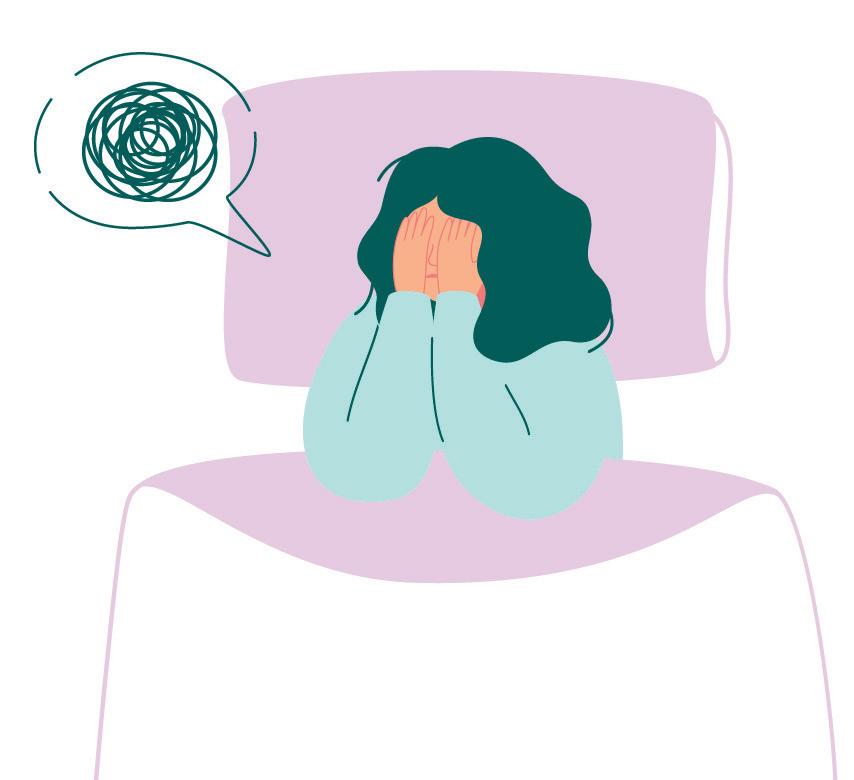
Sleep disorder treatments
He believes industry, the NHS and patient groups must work together to gain a better understanding of sleep disorders, and that includes providing access to relevant medication.

Considerable research is being conducted to develop new treatments and therapies, although, it can still be some time before they make it to market and are available for patients.
“Sleep disorders are complex, but the more research is done, the better our understanding is and then the more chance industry has of finding new medicines to treat patients,” says Dr Jones.
Specialised solutions
Companies such as Bioprojet are among the sector seeking to offer specialised solutions, such as those that improve wakefulness or reduce excessive daytime sleepiness and put the patient at the forefront of research and drug development.

Job code: Wak/UK/033/2023
Date of preparation: 16/03/2023
The impact of chronic insomnia extends beyond the individual; it has a broader societal and economic burden, which has not been widely explored, until recently.5
On World Sleep Day, 17th March, RAND Europe published first-of-itskind research which revealed the indirect and hidden costs of chronic insomnia across 16 countries.5 The report, funded by Idorsia Pharmaceuticals Ltd, Switzerland, found that chronic insomnia costs the UK economy up to an estimated £34 billion per year due to productivity loss in the workplace.5
nights. A key symptom of chronic insomnia is its negative impact on day-to-day functioning.2,3
In a recent UK survey of 155 adults living with chronic insomnia, over 80% of respondents reported their condition affected their ability to sustain a healthy level of physical activity, feel in a good mood in the daytime and maintain stress levels.4
The survey also unveiled a clear presence of stigma, with 81% of respondents agreeing they don’t think people around them understand the impact of the condition on their daily life.4
Marco Hafner, study co-author and RAND Europe research advisor comments: “This new research lays bare the significant personal and economic impacts that the inadequate management of sleep conditions such as chronic insomnia disorder is having in the UK. Our findings point to the need for more timely diagnosis and management of insomnia to improve outcomes for patients and deliver better economic outcomes for the UK.”
References
1. Chattu, V, et al. Healthcare. 2019;7(1):1.
2. The International Classification of Sleep Disorders (3rd ed.; ICSD-3; American Academy of Sleep Medicine, 2014).
3. The Diagnostic and Statistical Manual of Mental Disorders (5th ed.; DSM–5; American Psychiatric Association, 2013).
4. Data on file, Idorsia UK Ltd.

5. Hafner M, et al. The Societal and Economic Burden of Insomnia in Adults: An International Study. Santa Monica, CA: RAND Corporation, 2023.
The considerable impact of chronic insomnia on individuals and society is clear. It’s time to think differently about the condition. On March 1st, Idorsia UK launched a website for healthcare professionals offering educational content and resources around chronic insomnia.
Visit rethink insomnia.co.uk to find out more.
We increasingly recognise that sleep is essential for both our physical and mental health, but almost one in five people in the UK are not getting enough sleep.
The American Heart Association recently released ‘Life’s Essential 8’ which lists getting healthy sleep as one of the three key health behaviours which can improve cardiovascular health. Sleep is also intrinsically linked to our mood and mental wellbeing and has demonstrated links to depression and anxiety.
Why can’t we sleep?
The real challenge today is the fact that we can access everything we could possibly want, 24 hours a day, with rolling news cycles, boxsets to ‘binge watch’ and social media to scroll. In addition, our work now often intrudes into our evenings. However, there are four simple ways to promote good sleep.
Create a routine
Setting a constant routine is one of the most powerful tools we have for ensuring quality sleep. Plan a regular bedtime and stick to it at least five nights a week, and get some bright light as soon as possible after you wake — light is one of the strongest drivers of our circadian sleep rhythm.
Switch off
Aim to switch off devices at least an hour before bedtime. This allows you to start to switch off from work or social media, contributing to an electronic as well as a natural sundown. Consider setting an alarm to remind you to shut screens off before bed.
Wind down
There are many relaxation techniques that can help you calm your mind and improve sleep. Mindfulness meditation, yoga and breathing exercises can help you achieve calm. Consider a warm shower, listening to music or reading a book to quiet your mind.
Create the right environment
Your bedroom should be a place of rest and relaxation. The room should be cool, dark and quiet, and your bedding should allow your temperature to be regulated effectively throughout the night. Avoid caffeine from around 2 pm and cut down on alcohol.
Follow the tips
These tips should all help you gain restful sleep if you stick to them regularly. However, avoiding excessive focus on ‘the perfect night’s sleep’ is also important and, if you have been struggling with your sleep for three or more nights per week, especially over several months, do make an appointment to see your GP for more formal help.
WRITTEN BY Dr Allie Hare Consultant in Sleep Medicine, Royal Brompton Hospital, Guys and St Thomas’ NHS Foundation Trust and Secretary, British Sleep Society
There’s a close relationship between sleep and mental health. Living with a mental health problem can affect how well you sleep, and poor sleep can have a negative impact on your mental health.
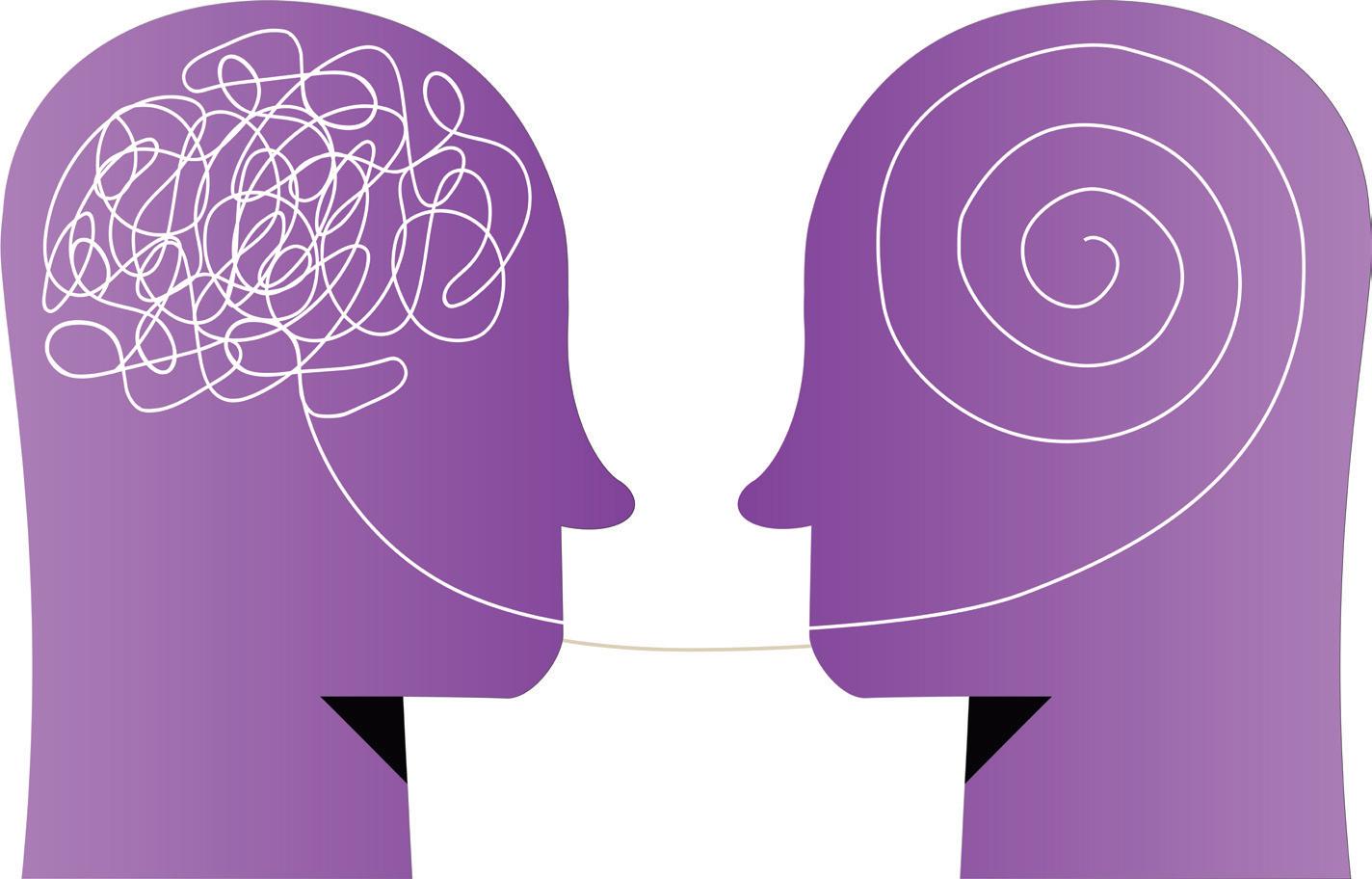
Everyone needs sleep, but many of us have problems with it. While having difficulties with sleep is not a mental health problem in itself — if you aren’t sleeping well, it can have a real impact on your mental wellbeing.
WRITTEN BY Jess D’Cruz Information Content Manager, MindLiving with a mental health problem can also affect how well you sleep.
Issues with sleeping patterns
Common sleep problems include finding it hard to fall asleep, staying asleep or waking up earlier than you’d like to (if this is happening regularly, it may be known as insomnia; find out more on the NHS website).
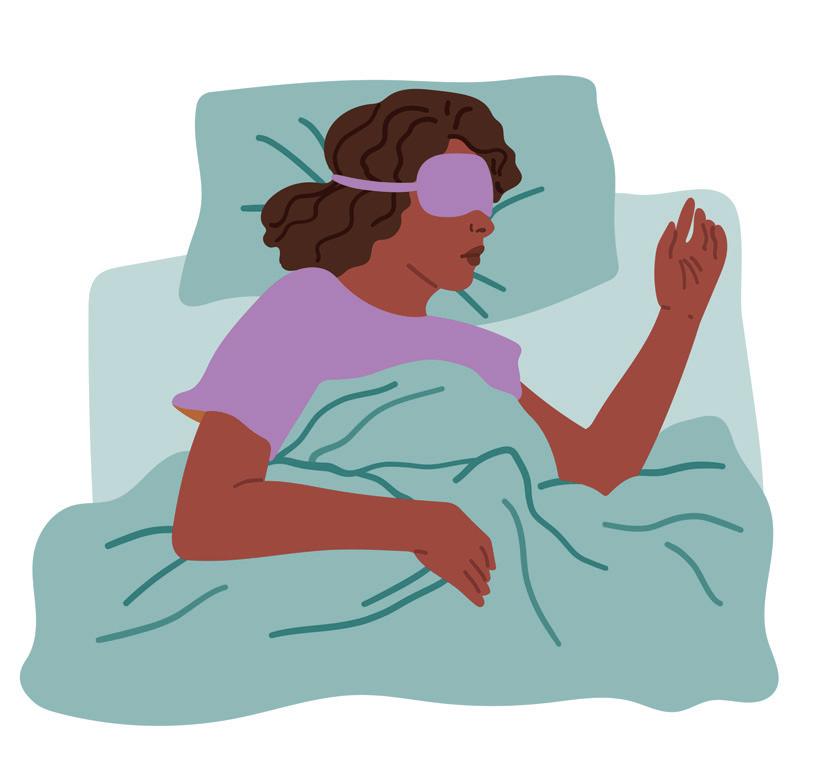
You may also find it hard to wake up or get out of bed and often feel tired or sleepy — this could be because you’re
not sleeping enough, not getting good quality sleep or because of health problems. You might experience problems that disturb your sleep, like nightmares and flashbacks. Or you might find that you’re sleeping too much, including at times when you want — or need — to be awake.
Connection between sleep and health
If you’re having problems sleeping, you might be more likely to feel anxious or depressed. You may struggle to concentrate or make plans and decisions. You might feel irritable, and you may find you’re more affected by other health problems, including mental health problems.
Jess D’Cruz, Information Content Manager at Mind, says: “We have long

known that there is a link between sleep and mental health, though it’s very difficult to establish a causal relationship. Sleeping too much or too little can be a symptom of a mental health problem, while difficulties sleeping can affect our mental health.”
“Not everyone who has a mental health problem will struggle with sleep, and not all people who struggle with sleep will develop mental health problems. If you’re experiencing changes to your mental health or sleep that impact your day-to-day life or last more than two weeks, it’s always a good idea to seek support from your GP. You can also see some tips for improving your sleep on the Mind website. ”
How much does your sleeping pattern impact your mental health?
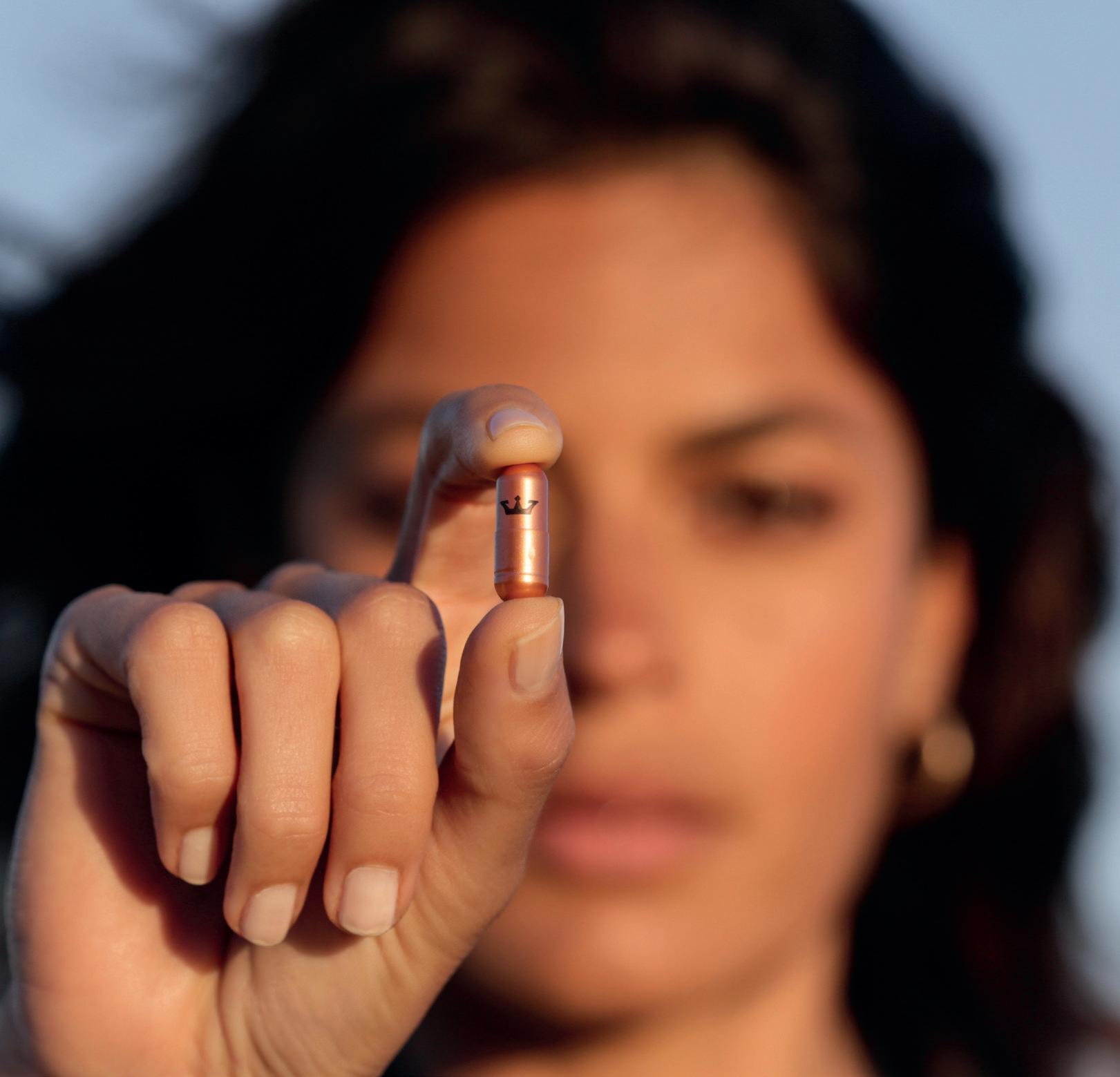
“We started from scratch with a blank piece of paper,” she says. “We didn’t look to benchmark it against existing products because the supplements industry is unregulated. Essentially, you can include any crushed herb and claim that it does whatever you want it to.
“We ensured that we were dosing correctly, meaning at the levels proven effective, unlike other companies who use minuscule doses that don’t have any benefits for the consumer.”
Pharmacologist Clayton says: “The supplement is unlike any other on the market because it only contains patented extracts that have been through rigorous testing and evidence-based nutrition.
“These extracts make stressors, pains, anxieties and life in general much easier to deal with, and that has a direct bearing on many of menopausal symptoms, both psychological and emotional.”
Getting a good night’s sleep is often an all too elusive prospect for perimenopausal women. But now, a ground-breaking supplement offers a possible solution.
For many women going through perimenopause and menopause, uncomfortable symptoms such as hot flushes and night sweats are often to blame when it comes to disrupted sleep. But fluctuating hormones are perhaps the biggest culprit of all and can negatively impact a number of things, including sleep.
Launched in 2018, the LYMA Supplement was designed to help people of all genders and ages but seems to have gained something of a following among perimenopausal women seeking to get a good night’s sleep. In fact, the London-based company producing the supplement has found that the majority of its worldwide customers are women who have found it helped with their perimenopausal or menopausal symptoms.


Claiming to improve sleep, reduce stress, boost focus and immunity — and even promote better skin,
hair and nail health — the LYMA Supplement’s 10 evidence-based ingredients have all been rigorously tested, validated and engineered to increase antibodies, reduce inflammation, improve the number of cells in the brain’s membrane to aid with focus and enhance the quality of sleep.
“So many people suffer unnecessarily. If you can’t sleep, you’re stressed, have low immunity, a lack of focus, if it’s menopausal symptoms or you feel life is proving too much — that’s where the supplement can help,” says Lucy Goff, founder and CEO.
After a near death episode following the birth of her daughter where she contracted septicaemia, Goff sought out help to return her body to optimal health. A chance meeting with Dr Paul Clayton, now LYMA’s Director of Science and a world authority on preventative degenerative disease, would result in the creation of the supplement.

Clayton has received first-hand thanks from women who have benefited from the supplement. “I was giving a lecture in Norway, and a woman in the audience stormed the podium and threw her arms around me saying I had saved her life,” he says.
Goff concludes: “We like to think of ourselves as the Apple of wellness. Just like a new phone gets a software update each year, our product will evolve as science evolves; and as new ingredients come to the fore, we will update the formula.”
So many people suffer unnecessarily.
Obstructive sleep apnoea (OSA) is caused by excessive narrowing of the throat during sleep. Anything that narrows the throat such as enlarged tonsils, or a set-back lower jaw, makes it easy for the throat to close and block the airway.
Do you snore loudly and fall asleep during waking hours? Does your spouse or partner’s snoring disturb your sleep? Do they seem to stop breathing while asleep? If the answer to these questions is YES, then you may well suffer from a serious but treatable condition called Obstructive Sleep Apnoea.
What is obstructive sleep apnoea?
People with OSA do not sleep properly. Sleep is constantly disrupted by snoring and pauses in breathing for short periods. This can happen several hundred times each night. Sufferers often fall asleep during the day even when working. It can also affect health in other ways (see the NHS website).
OSA is more common in men than women. The most important risk factor is being overweight and having a big neck. Extra neck fat squashes the throat from the outside, particularly when those muscles become floppier with sleep. However, women, girls and children are also affected.
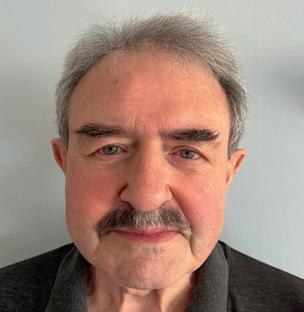
How to deal with obstructive sleep apnoea
There are two quick questionnaires in our information sheet ‘What is OSA – The Facts,’ which can be downloaded from our website. If your score is high, take the results to your GP to consider referral to an NHS Sleep Clinic in your area. They will carry out a sleep study — usually in your home — and if you have OSA, there is a simple and effective treatment available.
The most common treatment is to use a CPAP machine, a small electric pump that delivers slightly pressurised air to the upper airway via a mask, keeping the airway open during sleep.
CPAP restores refreshing sleep, improves energy levels and can be transformational. If you think you have OSA, the first step is to talk to your GP and get a referral to a Sleep Clinic. They will carry out a sleep test, and if you are diagnosed with OSA, treatment will quickly follow.
Sleep is constantly disrupted by snoring and pauses in breathing for short periods.